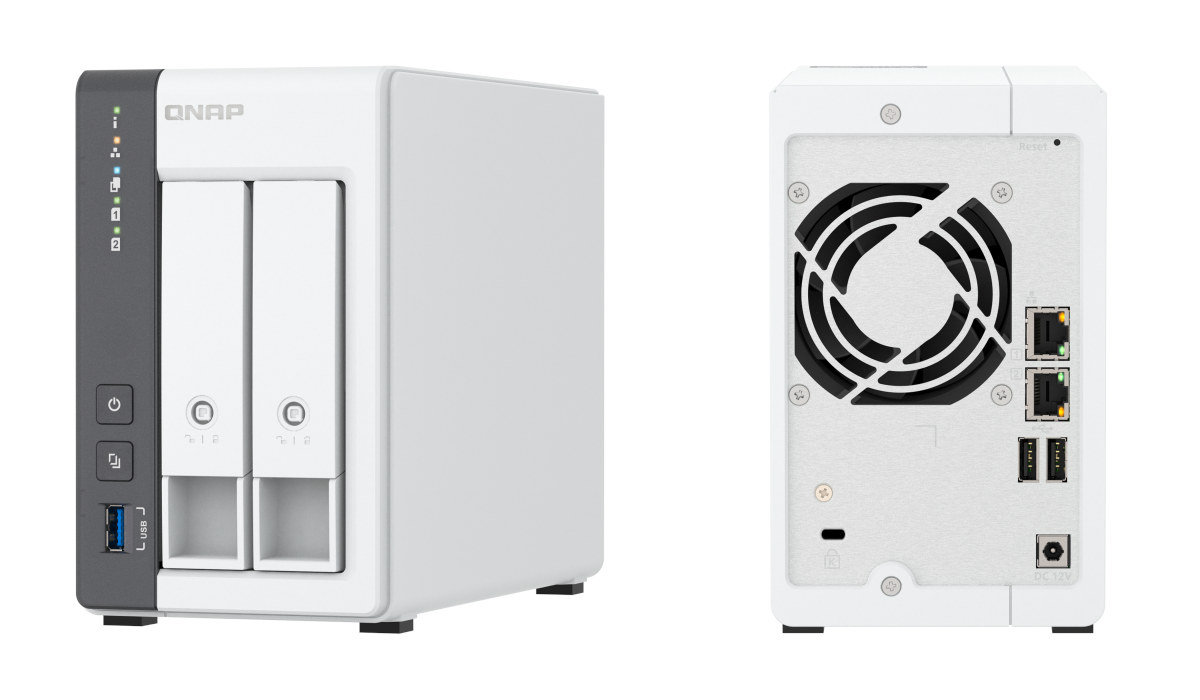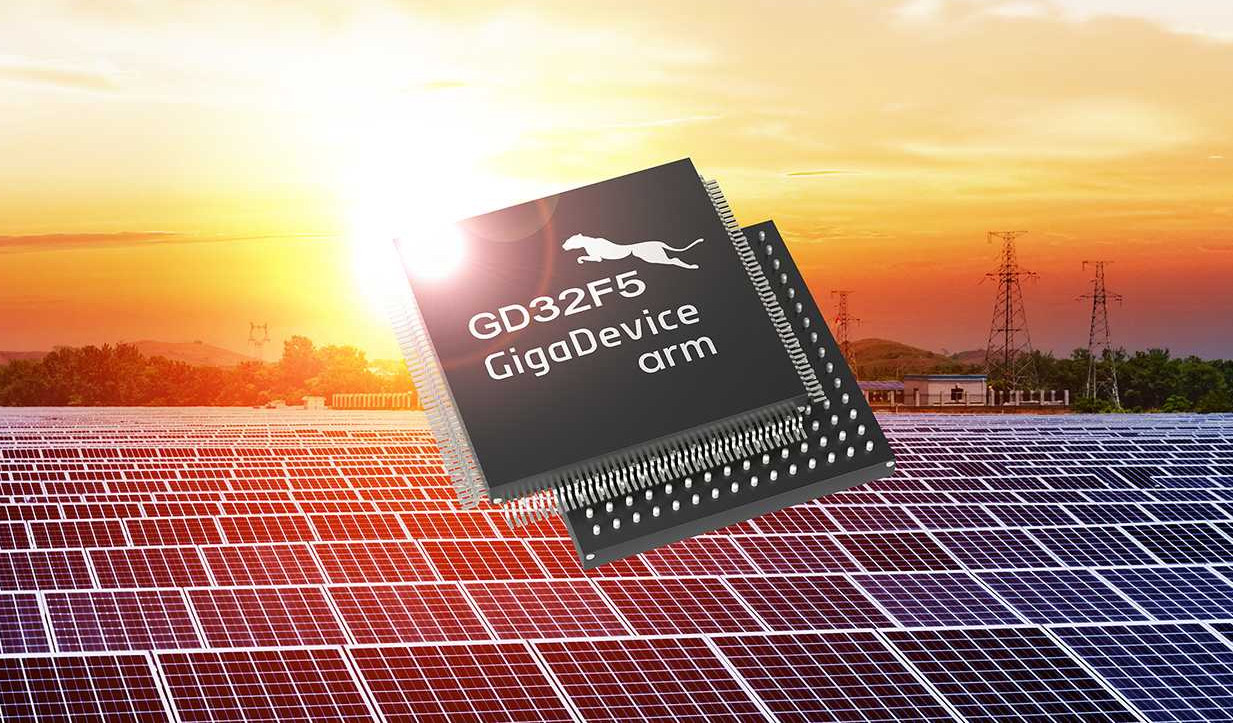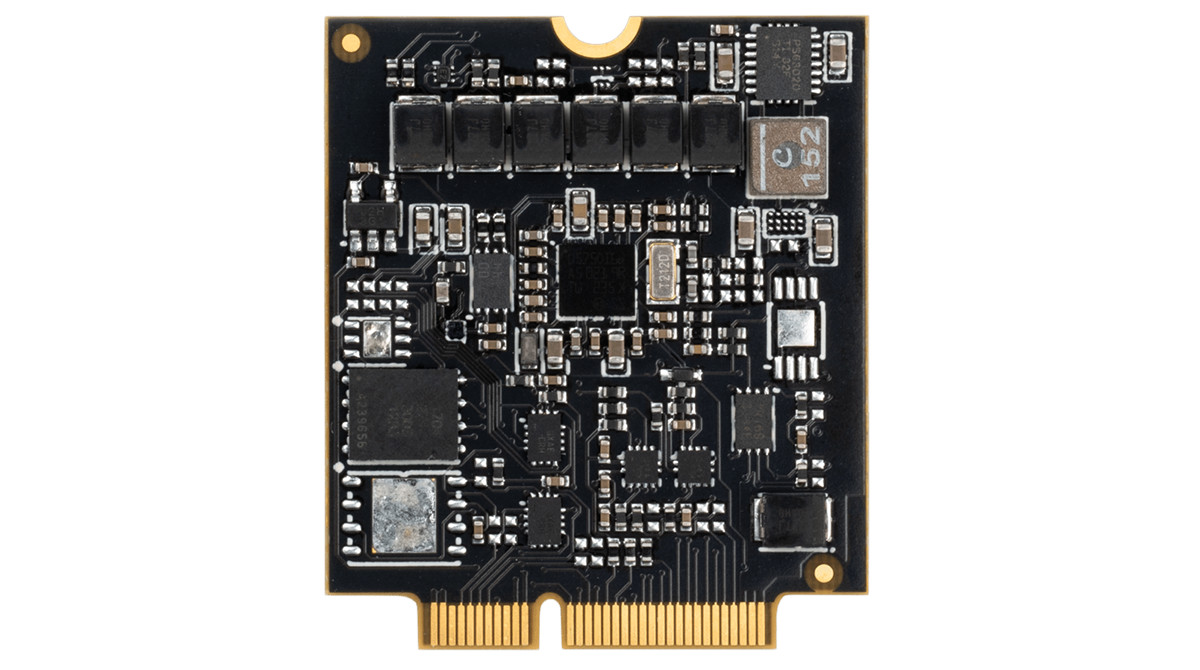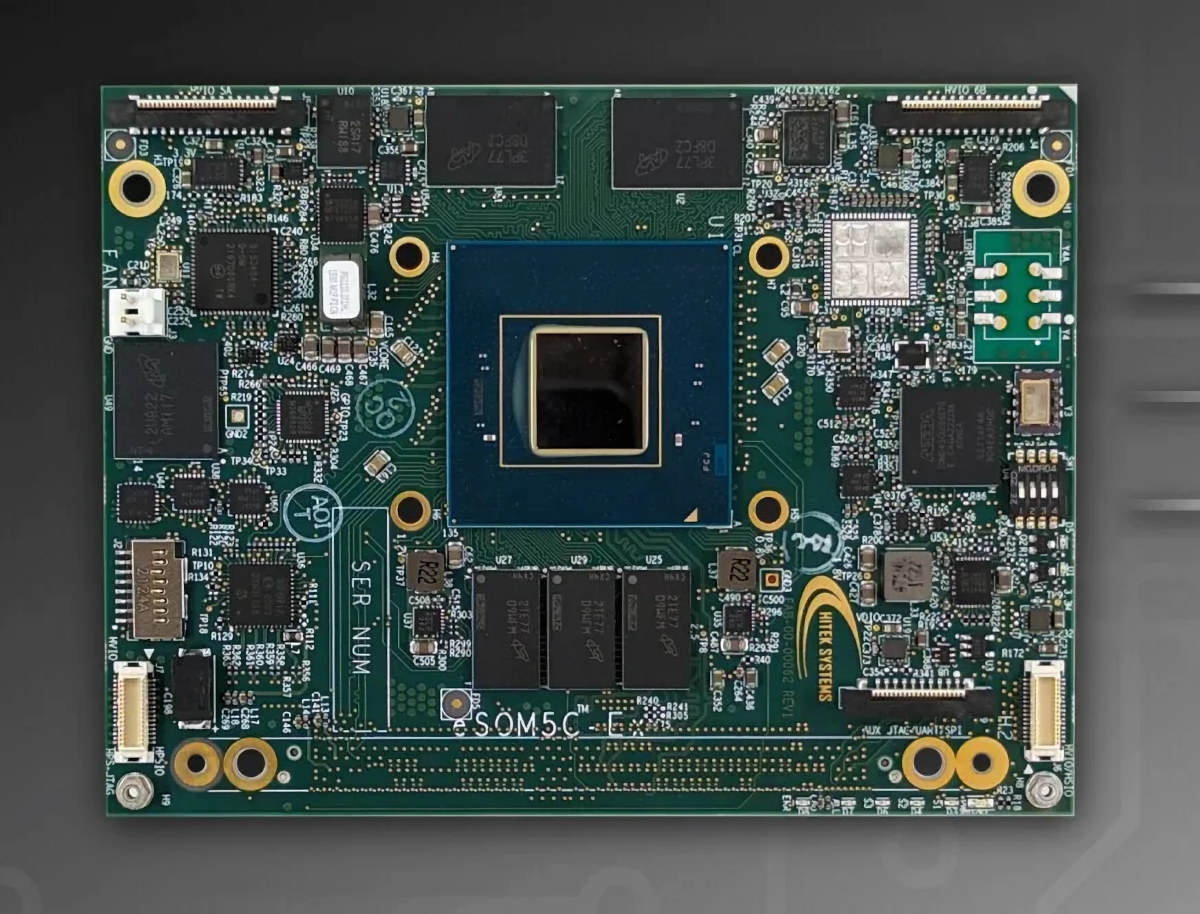The Yocto Project 5.0 codenamed “Scarthgap” has just been released with Linux 6.6, glibc 2.39, LLVM 18.1, and over 300 other recipe upgrades. As a result of the release, the developers have made it available for download (bz2 tarball). The Yocto Project, or Yocto for shorts, is a popular framework used to create custom embedded Linux distributions, and we’ve played with it over the year showing how to create a minimal image for the Raspberry Pi, and last year, we used it again when reviewing two industrial development boards, namely the VOIPAC IMX8M and ADLINK i-Pi SMARC 1200. Yocto is quite a powerful framework/build system with plenty of options that make it highly customizable, but the learning curve is fairly steep. Some other changes in Yocto Project 5.0 include: New variables: CVE_DB_INCR_UPDATE_AGE_THRES: Configure the maximum age of the internal CVE database for incremental update (instead of a full redownload). RPMBUILD_EXTRA_PARAMS: […]
QNAP TS-216G 2-bay NAS features a quad-core Arm processor with NPU for image sorting and searching
QNAP TS-216G 2-bay NAS features a quad-core Arm Cortex-A55 processor with an NPU for AI-powered photo management, 4GB RAM, 2.5GbE and GbE networking ports, two hot-swappable 3.5-inch SATA bay, and a few USB ports. It looks to be an update to the Rockchip RK3566-powered QNAP TS-133/TS-223 with more memory (4GB vs 2GB) and more advanced networking capability (2.5GbE+GbE vs GbE only), while still keeping the object and face recognition capabilities. QNAP TS-216G specifications: SoC – Unnamed but likely Rockchip RK3566 CPU – Quad-core Cortex-A55 clocked at up to 2.0 GHz GPU – Mali-G52 Neural Processing Unit (NPU) Hardware-accelerated Transcoding Encryption Engine System Memory – 4 GB RAM Storage 4 GB eMMC flash (dual boot OS protection) 2x 3.5-inch SATA III bay also supporting 2.5-inch SATA SSDs; hot-swappable Networking 2.5GbE RJ45 jack Gigabit Ethernet jack Wake-on-LAN (WoL) and Jumbo Frame support Number of Concurrent Connections (CIFS) – Up to 200 USB […]
Ambarella CV75S AI SoC brings Vision Language Models (VLM) and Vision Transformer Networks to cameras
Ambarella has been expanding its AI SoC portfolio, and the latest addition is the CV75S family of 5nm chips. The company claims this family introduces the most cost- and power-efficient SoC option for running the latest AI-based image processing like vision language models (VLMs) and vision transformer networks in security, robotics, conferencing, and sports cameras. The CV75S family is the first in Ambarella’s lineup to integrate the latest CVflow 3.0 AI engine, which results in 3 times the performance compared to the former generation. CVflow 3.0 is a chip architecture designed based on a deep understanding of the core computer vision algorithms. It features a dedicated vision-processing engine that Ambarella has programmed using a high-level algorithm description and works with Tensorflow, Caffe, and PyTorch. This engine enables the SoC to perform trillions of operations each second at a fraction of the power consumption of leading GPUs and general-purpose CPU solutions. These chips also […]
GigaDevice announces GD32F5 Cortex-M33 microcontroller targeted at high-performance applications
GigaDevice has officially launched the GD32F5 microcontroller series based on the Arm Cortex-M33 core. The Arm Cortex-M33 core has a maximum operating frequency of 200MHz and a working performance of up to 3.31 CoreMark/MHz. It also comes with a digital signal processing extension and a single-precision floating-point unit to reduce the load on the core. The GD32F5 microcontrollers are designed for high-performance applications and come equipped with up to 7.5MB on-chip flash, 1MB static RAM (SRAM), and diverse connectivity peripherals. The on-chip flash includes a zero-wait execution area (code flash) to improve code processing efficiency and real-time performance, and sizable data flash space for storing backups and parameters. The products support seamless OTA updates with a maximum of 2MB for Read-While-Write (RWW) operations. According to GigaDevice, the GD32F5 series is expected to find applications in “energy and power management, photovoltaic energy storage, industrial automation, programmable logic controllers (PLC), network communication […]
Blues launches $19 Notecard XP cellular IoT module and Notecarrier XP series carrier board
Blues has recently released the latest entry to its Notecard family, the Notecard XP (External Power supply), an updated and more cost-effective version of its existing Notecard Cellular. This new model reduces costs by not including certain components, such as SIM switching hardware, an embedded SIM with a data plan, and conformal coating while retaining all key features and functionalities. These include an Arm Cortex-M4 microcontroller, a three-axis accelerometer, a temperature sensor, and a secure element. Additionally, they have also removed the radio power supply to reduce costs further, bringing the price down to just $19. Alongside this release, Blues has also introduced a new “midband” LTE Cat 1 bis Notecard Cellular model, which features a single antenna design making it more compact and economical. In February this year we have seen Blues announced the Blues Starnote IoT Module, along with the Notecarrier A, B, F, and Pi series of […]
Arm Ethos-U85 NPU delivers up to 4 TOPS for Edge AI applications in Cortex-M7 to Cortex-A520 SoCs
Arm has just Introduced its third-generation NPU for edge AI with the Arm Ethos-U85 that scales from 256 GOPS to 4 TOPS or up to four times the maximum performance of the previous generation Ethos-U65 microNPU, while also delivering 20% higher power efficiency. While previous Arm microNPUs were paired with Cortex-M microcontroller-class cores potentially embedded into a Cortex-A application processor, the new Ethos-U85 can be married with Cortex-M microcontrollers and Cortex-A application processors up to the Cortex-A510/A520 Armv9 cores. Arm expects the Ethos-U85 to find its way into SoC designed for factory automation and commercial or smart home cameras with support for the new Transformer Networks and the more traditional Convolutional Neural Networks (CNNs). The Arm Ethos-U85 supports 128 to 2,048 MACs with performance ranging from 256 GOPS to 4 TOPS at 1 GHz, embeds 29 to 267KB RAM, offers SRAM, DRAM, and flash interface for external memory, and up […]
Silicon Labs MG26, BG26, and PG26 Cortex-M33 AI microcontrollers offer up to 3200KB flash, 512KB RAM, 64 GPIO’s
Silicon Labs has announced the xG26 family of Cortex-M33 wireless SoCs and MCUs that consists of the multiprotocol MG26 SoC, the Bluetooth LE BG26 SoC, and the PG26 general-purpose MCU without wireless connectivity, and features double the flash and RAM of the Silicon Labs xG24 devices. The xG26 family also comes with double the number of general-purpose input/output (GPIO) pins as the xG24 to enable engineers to build more complex devices in combination with the larger flash and memory reaching up to 3200 KB and 512KB respectively and also integrates a Matrix Vector Processor (MVP) for AI/ML hardware acceleration and Math functions. Silicon Labs MG26 and BG26 wireless SoCs MG26 and BG26 key features and specifications: MCU core – Arm Cortex-M33 @ 78 MHz AI/ML accelerator – Matrix Vector Processor that is 8x faster and 6x lower power than Cortex-M33 processing, and supports an MVP Math Library for non-ML workloads […]
Intel Agilex 5 SoC FPGA embedded SoM targets 5G equipment, 100GbE networking, Edge AI/ML applications
Hitek Systems eSOM5C-Ex is a compact embedded System-on-Module (SOM) based on the mid-range Intel Agilex 5 SoC FPGA E-Series and a pin-to-pin compatible with the company’s earlier eSOM7C-xF based on the Agilex 7 FPGA F-Series. The module exposes all I/Os, including up to 24 transceivers, through the same 400-pin high-density connector found in the Agilex 7 FPGA-powered eSOM7-xF and the upcoming Agilex 5 FPGA D-Series SOM that will allow flexibility from 100K to 2.7 million logic elements (LEs) for the whole product range. Hitek eSOM5C-Ex specifications: SoC FPGA – Intel Agilex 5 E-series group A and Group B FPGAs in B32 package Supported variants: A5E065A/B, A5E043A/B and A5E043A/B Hard Processing System (HPS) – Dual-core Cortex-A76 and dual-core Cortex-A55 FPGA Up to 656,080 Logic elements 24 x transceivers up to 28Gbps System Memory Up to 2x 8GB LPDDR4 for FPGA 2 or 4GB DDR4 for HPS Storage – 32GB eMMC flash, […]









